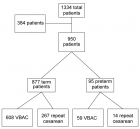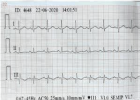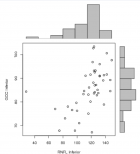Abstract
Case Study
Improvement of the Cognitive Abilities in a Chronic Generalized Anxiety Disorder and Moderate Depression Case using a Novel Integrated Approach: The Cognitome Program
Mohita Shrivastava*
Published: 01 July, 2024 | Volume 8 - Issue 2 | Pages: 069-089
Cognitive impairment has been increasingly observed among patients with anxiety disorders and major depressive disorders impacting their normal daily functioning as well as quality of life. A multitude of evidence suggests that the most affected cognitive abilities are memory, attention, perception, and executive functioning in patients with anxiety and depression. Impairment in these higher-order cognitive functions can be attributed to age, education, diet, hormonal changes, stress, and prolonged use of drugs/alcohol/ medicines. To address the issues related to cognitive impairment various non-pharmacological therapeutic modalities such as Cognitive remediation approaches viz; cognitive rehabilitation, cognitive stimulation, and cognitive training; Audio-visual entrainment; mindfulness-based interventions; and neurofeedback have come into play in recent years. It is imperative to understand that the ability to test, measure, and monitor cognitive performance along with implementing cognitive remediation approaches viz; cognitive stimulation, cognitive training, etc. across the lifespan helps in early identification, accessing treatments faster, staying healthy for longer, and improving overall quality of life. This article discusses a case study of a client suffering from generalized anxiety disorder and moderate depression who after undergoing and following a novel therapeutic approach, ‘The Cognitome Program’ has shown credible improvement in cognitive abilities, along with a prominent reduction in the symptoms of anxiety, depression, and better psychological and physical well-being. Guided by the concept of neuroplasticity and cognitive plasticity, our innovative neuroscientific holistic program- ‘The Cognitome Program’ empowers unlocking hidden cognitive potential using cutting-edge methodologies and personalized strategies.
Read Full Article HTML DOI: 10.29328/journal.jnnd.1001100 Cite this Article Read Full Article PDF
Keywords:
Cognitive impairment; Anxiety disorder; Depression; Cognitive training; Mindfulness interventions
References
- Grillon C, Robinson OJ, Cornwell B, Ernst M. Modeling anxiety in healthy humans: a key intermediate bridge between basic and clinical sciences. Neuropsychopharmacology. 2019 Nov;44(12):1999-2010. doi: 10.1038/s41386-019-0445-1. Epub 2019 Jun 21. PMID: 31226707; PMCID: PMC6897969.
- Castaneda AE, Tuulio-Henriksson A, Marttunen M, Suvisaari J, Lönnqvist J. A review on cognitive impairments in depressive and anxiety disorders with a focus on young adults. J Affect Disord. 2008 Feb;106(1-2):1-27. doi: 10.1016/j.jad.2007.06.006. Epub 2007 Aug 20. PMID: 17707915.
- Chisholm D, Sweeny K, Sheehan P, Rasmussen B, Smit F. Scaling-up treatment of depression and anxiety: a global return on investment analysis. Lancet Psychiatry. 2016 May;3(5):415-24. doi: 10.1016/S2215-0366(16)30024-4.
- LeDoux JE, Pine DS. Using neuroscience to help understand fear and anxiety: a two-system framework. Am J Psychiatry. 2016 Oct 1;173(10):1083-93. doi: 10.1176/appi.ajp.2016.16030353..
- Gkintoni E, Ortiz PS. Neuropsychology of Generalized Anxiety Disorder in Clinical Setting: A Systematic Evaluation. Healthcare (Basel). 2023 Aug 31;11(17):2446. doi: 10.3390/healthcare11172446. PMID: 37685479; PMCID: PMC10486954.
- Lukasik KM, Waris O, Soveri A, Lehtonen M, Laine M. The Relationship of Anxiety and Stress With Working Memory Performance in a Large Non-depressed Sample. Front Psychol. 2019 Jan 23;10:4. doi: 10.3389/fpsyg.2019.00004. PMID: 30728790; PMCID: PMC6351483.
- Balderston NL, Flook E, Hsiung A, Liu J, Thongarong A, Stahl S, Makhoul W, Sheline Y, Ernst M, Grillon C. Patients with anxiety disorders rely on bilateral dlPFC activation during verbal working memory. Soc Cogn Affect Neurosci. 2020 Dec 24;15(12):1288-1298. doi: 10.1093/scan/nsaa146. PMID: 33150947; PMCID: PMC7759210.
- Fitzgerald JM, Phan KL, Kennedy AE, Shankman SA, Langenecker SA, Klumpp H. Prefrontal and amygdala engagement during emotional reactivity and regulation in generalized anxiety disorder. J Affect Disord. 2017 Aug 15;218:398-406. doi: 10.1016/j.jad.2017.05.013. Epub 2017 May 7. PMID: 28501740; PMCID: PMC6608590.
- Perini G, Cotta Ramusino M, Sinforiani E, Bernini S, Petrachi R, Costa A. Cognitive impairment in depression: recent advances and novel treatments. Neuropsychiatr Dis Treat. 2019 May 10;15:1249-1258. doi: 10.2147/NDT.S199746. PMID: 31190831; PMCID: PMC6520478.
- Lam RW, Kennedy SH, McIntyre RS, Khullar A. Cognitive Dysfunction in Major Depressive Disorder: Effects on Psychosocial Functioning and Implications for Treatment. Can J Psychiatry. 2014 Dec;59(12):649-654. doi: 10.1177/070674371405901206.
- Haimov I, Hanuka E, Horowitz Y. Chronic insomnia and cognitive functioning among older adults. Behav Sleep Med. 2008;6(1):32-54. doi: 10.1080/15402000701796080. PMID: 18412036.
- Dominguez LJ, Veronese N, Vernuccio L, Catanese G, Inzerillo F, Salemi G, Barbagallo M. Nutrition, Physical Activity, and Other Lifestyle Factors in the Prevention of Cognitive Decline and Dementia. Nutrients. 2021 Nov 15;13(11):4080. doi: 10.3390/nu13114080. PMID: 34836334; PMCID: PMC8624903.
- Beddington J, Cooper CL, Field J, Goswami U, Huppert FA, Jenkins R, Jones HS, Kirkwood TB, Sahakian BJ, Thomas SM. The mental wealth of nations. Nature. 2008 Oct 23;455(7216):1057-60. doi: 10.1038/4551057a. PMID: 18948946.
- Robinson OJ, Vytal K, Cornwell BR, Grillon C. The impact of anxiety upon cognition: perspectives from human threat of shock studies. Front Hum Neurosci. 2013 May 17;7:203. doi: 10.3389/fnhum.2013.00203. PMID: 23730279; PMCID: PMC3656338.
- Koen N, Stein DJ. Pharmacotherapy of anxiety disorders: a critical review. Dialogues Clin Neurosci. 2011;13(4):423-37. doi: 10.31887/DCNS.2011.13.4/nkoen. PMID: 22275848; PMCID: PMC3263390.
- Zoellner LA, Foa EB. Applying Research Domain Criteria (RDoC) to the study of fear and anxiety: A critical comment. Psychophysiology. 2016 Mar;53(3):332-5. doi: 10.1111/psyp.12588. PMID: 26877122.
- Orgeta V, Leung P, Del-Pino-Casado R, Qazi A, Orrell M, Spector AE, Methley AM. Psychological treatments for depression and anxiety in dementia and mild cognitive impairment. Cochrane Database Syst Rev. 2022 Apr 25;4(4):CD009125. doi: 10.1002/14651858.CD009125.pub3. PMID: 35466396; PMCID: PMC9035877.
- Bahar-Fuchs A, Clare L, Woods B. Cognitive training and cognitive rehabilitation for mild to moderate Alzheimer's disease and vascular dementia. Cochrane Database Syst Rev. 2013 Jun 5;2013(6):CD003260. doi: 10.1002/14651858.CD003260.pub2. PMID: 23740535; PMCID: PMC7144738.
- Barman A, Chatterjee A, Bhide R. Cognitive Impairment and Rehabilitation Strategies After Traumatic Brain Injury. Indian J Psychol Med. 2016 May-Jun;38(3):172-81. doi: 10.4103/0253-7176.183086. PMID: 27335510; PMCID: PMC4904751.
- Greenwood PM, Parasuraman R. Neuronal and cognitive plasticity: a neurocognitive framework for ameliorating cognitive aging. Front Aging Neurosci. 2010 Nov 29;2:150. doi: 10.3389/fnagi.2010.00150. PMID: 21151819; PMCID: PMC2999838.
- Frohlich F, Riddle J, Ugen G, Lersch F. Brainwave entrainment for the treatment of chronic pain. Br J Pain. 2020 Aug;14(3):161-170.
- Yadav GS, Cidral-Filho FJ, Iyer RB. Using Heartfulness Meditation and Brainwave Entrainment to Improve Teenage Mental Wellbeing. Front Psychol. 2021 Oct 15;12:742892. doi: 10.3389/fpsyg.2021.742892. PMID: 34721219; PMCID: PMC8554296.
- Zhang H, Huntley J, Bhome R, Holmes B, Cahill J, Gould RL, Wang H, Yu X, Howard R. Effect of computerised cognitive training on cognitive outcomes in mild cognitive impairment: a systematic review and meta-analysis. BMJ Open. 2019 Aug 18;9(8):e027062. doi: 10.1136/bmjopen-2018-027062. PMID: 31427316; PMCID: PMC6701629.
- Gomez-Soria I, Peralta-Marrupe P, Plo F. Cognitive stimulation program in mild cognitive impairment A randomized controlled trial. Dement Neuropsychol. 2020 Apr-Jun;14(2):110-117. doi: 10.1590/1980-57642020dn14-020003. PMID: 32595879; PMCID: PMC7304274.
- Asensio D, Duñabeitia JA. The necessary, albeit belated, transition to computerized cognitive assessment. Front Psychol. 2023 Apr 24;14:1160554. doi: 10.3389/fpsyg.2023.1160554. PMID: 37168430; PMCID: PMC10165007.
- Wilson KG, Sandoz EK. Mindfulness, values, and the therapeutic relationship in acceptance and commitment therapy. In: Hick S, Bein T, editors. Mindfulness and the therapeutic relationship. Guilford Press; 2008.
- Garner AR, Stuart GL. Integrating Mindfulness and Acceptance Into Traditional Cognitive Behavioral Therapy During the COVID-19 Pandemic: A Case Study of an Adult Man With Generalized Anxiety Disorder. Clin Case Stud. 2023 Apr;22(2):120-137. doi: 10.1177/15346501221123568. Epub 2022 Aug 23. PMID: 38603362; PMCID: PMC9403529.
- Berns C, Brüchle W, Scho S, Schneefeld J, Schneider U, Rosenkranz K. Intensity dependent effect of cognitive training on motor cortical plasticity and cognitive performance in humans. Exp Brain Res. 2020 Dec;238(12):2805-2818. doi: 10.1007/s00221-020-05933-5. Epub 2020 Oct 6. PMID: 33025030; PMCID: PMC7644474.
- Duñabeitia JA, Mera F, Baro Ó, Jadad-Garcia T, Jadad AR. Personalized Computerized Training for Cognitive Dysfunction after COVID-19: A Before-and-After Feasibility Pilot Study. Int J Environ Res Public Health. 2023 Feb 10;20(4):3100. doi: 10.3390/ijerph20043100. PMID: 36833793; PMCID: PMC9966004.
- Hofmann SG, Sawyer AT, Witt AA, Oh D. The effect of mindfulness-based therapy on anxiety and depression: A meta-analytic review. J Consult Clin Psychol. 2010 Apr;78(2):169-83. doi: 10.1037/a0018555. PMID: 20350028; PMCID: PMC2848393.
- Hamilton M. Development of a rating scale for primary depressive illness. Br J Soc Clin Psychol. 1967 Dec;6(4):278-96. doi: 10.1111/j.2044-8260.1967.tb00530.x. PMID: 6080235.
- Beck AT, Epstein N, Brown G, Steer RA. An inventory for measuring clinical anxiety: psychometric properties. J Consult Clin Psychol. 1988 Dec;56(6):893-7. doi: 10.1037//0022-006x.56.6.893. PMID: 3204199.
- Spitzer RL, Kroenke K, Williams JB, Löwe B. A brief measure for assessing generalized anxiety disorder: the GAD-7. Arch Intern Med. 2006 May 22;166(10):1092-7. doi: 10.1001/archinte.166.10.1092. PMID: 16717171.
- Hamilton M. The assessment of anxiety states by rating. Br. J. Med. Psychol. 1959; 32:50–55. doi: 10.1111/j.2044-8341. 1959.tb00467.
- BECK AT, WARD CH, MENDELSON M, MOCK J, ERBAUGH J. An inventory for measuring depression. Arch Gen Psychiatry. 1961 Jun;4:561-71. doi: 10.1001/archpsyc.1961.01710120031004. PMID: 13688369.
- Henry JD, Crawford JR. The short-form version of the Depression Anxiety Stress Scales (DASS-21): construct validity and normative data in a large non-clinical sample. Br J Clin Psychol. 2005 Jun;44(Pt 2):227-39. doi: 10.1348/014466505X29657. PMID: 16004657.
- Lovibond SH, Lovibond PF. Manual for the Depression Anxiety Stress Scales. 2nd ed. Sydney: Psychology Foundation; 1995.
- Burckhardt CS, Woods SL, Schultz AA, Ziebarth DM. Quality of life of adults with chronic illness: a psychometric study. Res Nurs Health. 1989 Dec;12(6):347-54. doi: 10.1002/nur.4770120604. PMID: 2602575.
- Flanagan JC. Measurement of quality of life: current state of the art. Arch Phys Med Rehabil. 1982 Feb;63(2):56-9. PMID: 6460487.
- Daaleman TP, Frey BB. The Spirituality Index of Well-Being: A New Instrument for Health-Related Quality of Life Research. Ann Fam Med. 2004 Sep-Oct;2(5):499-503.
- Huber S. Are religious beliefs relevant in daily life? In: Streib H, editor. Religion Inside and Outside Traditional Institutions. Leiden: Brill Academic Publishers; 2007; 211-230.
- Araújo P, Gomes S, Vidal DG, Sousa HFPE, Dinis MAP, Leite Â. Preliminary Validation Study of the Intrinsic Religious Motivation Scale and the Centrality of Religiosity Scale for the Portuguese Population. Eur J Investig Health Psychol Educ. 2021 Aug 18;11(3):908-922. doi: 10.3390/ejihpe11030067. PMID: 34563080; PMCID: PMC8544200.
- Folstein M, Folstein SE, McHugh PR. "Mini-Mental State": a practical method for grading the cognitive state of patients for the clinician. J Psychiatr Res. 1975 Nov;12(3):189-198.
- Nasreddine ZS, Phillips NA, Bédirian V, Charbonneau S, Whitehead V, Collin I, Cummings JL, Chertkow H. The Montreal Cognitive Assessment, MoCA: a brief screening tool for mild cognitive impairment. J Am Geriatr Soc. 2005 Apr;53(4):695-9. doi: 10.1111/j.1532-5415.2005.53221.x. Erratum in: J Am Geriatr Soc. 2019 Sep;67(9):1991. doi: 10.1111/jgs.15925. PMID: 15817019.
- Tariq SH, Tumosa N, Chibnall JT, Perry MH 3rd, Morley JE. Comparison of the Saint Louis University mental status examination and the mini-mental state examination for detecting dementia and mild neurocognitive disorder--a pilot study. Am J Geriatr Psychiatry. 2006 Nov;14(11):900-10. doi: 10.1097/01.JGP.0000221510.33817.86. PMID: 17068312.
- Broadbent DE, Cooper PF, FitzGerald P, Parkes KR. The Cognitive Failures Questionnaire (CFQ) and its correlates. Br J Clin Psychol. 1982 Feb;21(1):1-16. doi: 10.1111/j.2044-8260.1982.tb01421.x. PMID: 7126941.
- Rast P, Zimprich D, Van Boxtel M, Jolles J. Factor structure and measurement invariance of the cognitive failures questionnaire across the adult life span. Assessment. 2009 Jun;16(2):145-58. doi: 10.1177/1073191108324440. Epub 2008 Dec 9. PMID: 19066391.
- Jorgenson E. Development of the Open Hemispheric Brain Dominance Scale. 2015. Available from: http://openpsychometrics.org/tests/OHBDS/development/
- Yaneva A, Massaldjieva R, Mateva N. Initial Adaptation of the General Cognitive Assessment Battery by Cognifit™ for Bulgarian Older Adults. Exp Aging Res. 2022 Jul-Sep;48(4):336-350. doi: 10.1080/0361073X.2021.1981096. Epub 2021 Oct 3. PMID: 34605370.
- Buades-Sitjar F, Duñabeitia JA. Intelligence subcomponents and their relationship to general knowledge. J Cult Cogn Sci. 2022;6:343-355. doi: 10.1007/s41809-022-00113-z.
- Ball K, Berch DB, Helmers KF, Jobe JB, Leveck MD, Marsiske M, Morris JN, Rebok GW, Smith DM, Tennstedt SL, Unverzagt FW, Willis SL; Advanced Cognitive Training for Independent and Vital Elderly Study Group. Effects of cognitive training interventions with older adults: a randomized controlled trial. JAMA. 2002 Nov 13;288(18):2271-81. doi: 10.1001/jama.288.18.2271. PMID: 12425704; PMCID: PMC2916176.
- Gates N, Valenzuela M. Cognitive exercise and its role in cognitive function in older adults. Curr Psychiatry Rep. 2010 Feb;12(1):20-7. doi: 10.1007/s11920-009-0085-y. PMID: 20425306.
- Soutar P, Longo R. Doing Neurofeedback: An Introduction. 2011.
- Demos J. Getting Started with Neurofeedback. W. W. Norton & Company; 2005.
- Ingendoh RM, Posny ES, Heine A. Binaural beats to entrain the brain? A systematic review of the effects of binaural beat stimulation on brain oscillatory activity, and the implications for psychological research and intervention. PLoS One. 2023 May 19;18(5):e0286023. doi: 10.1371/journal.pone.0286023. PMID: 37205669; PMCID: PMC10198548.
- Orozco Perez HD, Dumas G, Lehmann A. Binaural Beats through the Auditory Pathway: From Brainstem to Connectivity Patterns. eNeuro. 2020 Mar 19;7(2):ENEURO.0232-19.2020. doi: 10.1523/ENEURO.0232-19.2020. PMID: 32066611; PMCID: PMC7082494.
- Ross B, Miyazaki T, Thompson J, Jamali S, Fujioka T. Human cortical responses to slow and fast binaural beats reveal multiple mechanisms of binaural hearing. J Neurophysiol. 2014 Oct 15;112(8):1871-84. doi: 10.1152/jn.00224.2014. Epub 2014 Jul 9. PMID: 25008412.
- Le Scouarnec RP, Poirier RM, Owens JE, Gauthier J, Taylor AG, Foresman PA. Use of binaural beat tapes for treatment of anxiety: a pilot study of tape preference and outcomes. Altern Ther Health Med. 2001 Jan;7(1):58-63. PMID: 11191043.
- Gupta A. Significance of alpha brainwaves in meditation examined from the study of binaural beats. In: International Conference on Signal Processing and Communication (ICSC); 2016. p. 484-489. doi: 10.1109/ICSPCom.2016.7980629.
- Seifi T. Cumulative effects of theta binaural beats on brain power and functional connectivity. Biomed Signal Process Control. 2018 Apr;42:242-252.
- Zampi DD. Efficacy of Theta-Binaural Beats for the Treatment of Chronic Pain. Northcentral University; 2015. ProQuest Dissertations Publishing 3670283.
- Ghosh K, Nanda S, Hurt RT, Schroeder DR, West CP, Fischer KM, Bauer BA, Fokken SC, Ganesh R, Hanson JL, Lindeen SA, Pruthi S, Croghan IT. Mindfulness Using a Wearable Brain Sensing Device for Health Care Professionals During a Pandemic: A Pilot Program. J Prim Care Community Health. 2023 Jan-Dec;14:21501319231162308. doi: 10.1177/21501319231162308. PMID: 36960553; PMCID: PMC10041582.
- Moore A, Malinowski P. Meditation, mindfulness and cognitive flexibility. Conscious Cogn. 2009 Mar;18(1):176-86. doi: 10.1016/j.concog.2008.12.008. Epub 2009 Jan 31. PMID: 19181542.
- Millstine DM, Bhagra A, Jenkins SM, Croghan IT, Stan DL, Boughey JC, Nguyen MT, Pruthi S. Use of a Wearable EEG Headband as a Meditation Device for Women With Newly Diagnosed Breast Cancer: A Randomized Controlled Trial. Integr Cancer Ther. 2019 Jan-Dec;18:1534735419878770. doi: 10.1177/1534735419878770. PMID: 31566031; PMCID: PMC6769228.
- Marusic U, Verghese J, Mahoney JR. Does Cognitive Training Improve Mobility, Enhance Cognition, and Promote Neural Activation? Front Aging Neurosci. 2022 May 23;14:845825. doi: 10.3389/fnagi.2022.845825. PMID: 35677205; PMCID: PMC9168002.
- Straube T, Korz V, Frey JU. Bidirectional modulation of long-term potentiation by novelty-exploration in rat dentate gyrus. Neurosci Lett. 2003 Jun 19;344(1):5-8. doi: 10.1016/s0304-3940(03)00349-5. PMID: 12781908.
- Grossman AW, Churchill JD, McKinney BC, Kodish IM, Otte SL, Greenough WT. Experience effects on brain development: possible contributions to psychopathology. J Child Psychol Psychiatry. 2003 Jan;44(1):33-63. doi: 10.1111/1469-7610.t01-1-00102. PMID: 12553412.
- Chaieb L, Wilpert EC, Reber TP, Fell J. Auditory beat stimulation and its effects on cognition and mood States. Front Psychiatry. 2015 May 12;6:70. doi: 10.3389/fpsyt.2015.00070. PMID: 26029120; PMCID: PMC4428073.
- Lezak MD. Neuropsychological Assessment. 4th Oxford University Press; 2004.
Figures:
Similar Articles
-
Impact of mandibular advancement device in quantitative electroencephalogram and sleep quality in mild to severe obstructive sleep apneaCuspineda-Bravo ER*,García- Menéndez M,Castro-Batista F,Barquín-García SM,Cadelo-Casado D,Rodríguez AJ,Sharkey KM. Impact of mandibular advancement device in quantitative electroencephalogram and sleep quality in mild to severe obstructive sleep apnea. . 2020 doi: 10.29328/journal.jnnd.1001041; 4: 088-098
-
Idiopathic parkinson’s disease and fatigueHacı Ali Erdoğan,Vildan Yayla,Nejla Sözer,Filiz Yıldız Aydın,Ibrahim Acır,Meltem Vural. Idiopathic parkinson’s disease and fatigue. . 2022 doi: 10.29328/journal.jnnd.1001062; 6: 016-019
-
Nutritional interventions for the prevention and treatment of neurological disorders such as anxiety, bipolar disorder, depression, epilepsy, multiple sclerosis, and schizophreniaSahithi Madireddy*,Samskruthi Madireddy. Nutritional interventions for the prevention and treatment of neurological disorders such as anxiety, bipolar disorder, depression, epilepsy, multiple sclerosis, and schizophrenia. . 2022 doi: 10.29328/journal.jnnd.1001070; 6: 052-071
-
Case study (A and B): a patient with Parkinson’s diseaseMuhammad Zulkifl Hasan*,Muhammad Zunnurain Hussain,Khadeeja Anjum,Arha Anwar. Case study (A and B): a patient with Parkinson’s disease. . 2023 doi: 10.29328/journal.jnnd.1001073; 7: 005-010
-
Bimatoprost Ophthalmic Solution (BOS) 0.3 mg w/v for 1 Open Trial of Long-term Preventive Therapy of Migraine in 3 patients with Pathophysiologic Shift from Brain to EyeVinod Kumar Gupta*. Bimatoprost Ophthalmic Solution (BOS) 0.3 mg w/v for 1 Open Trial of Long-term Preventive Therapy of Migraine in 3 patients with Pathophysiologic Shift from Brain to Eye. . -0001 doi: 10.29328/journal.jnnd.1001087; 7: 134-154
-
Bimatoprost Ophthalmic Solution (BOS) 0.3 mg w/v for 1 Open Trial of Long-term Preventive Therapy of Migraine in 3 patients with Pathophysiologic Shift from Brain to EyeVinod Kumar Gupta*. Bimatoprost Ophthalmic Solution (BOS) 0.3 mg w/v for 1 Open Trial of Long-term Preventive Therapy of Migraine in 3 patients with Pathophysiologic Shift from Brain to Eye. . 2023 doi: 10.29328/journal.jnnd.1001087; 7: 134-054
-
Comparative Study of Cerebral Volumetric Variations in Patients with Schizophrenia with their Unaffected First-degree Relatives, using Magnetic Resonance Imaging Technique, a Case-control StudyMahdiye Fanayi,Mohammad Ali Oghabian*,Hamid Reza Naghavi,Hassan Farrahi. Comparative Study of Cerebral Volumetric Variations in Patients with Schizophrenia with their Unaffected First-degree Relatives, using Magnetic Resonance Imaging Technique, a Case-control Study. . 2024 doi: 10.29328/journal.jnnd.1001088; 8: 001-007
-
Laws of Pathophysiology of Migraine in the Third MillenniumVinod Kumar Gupta*. Laws of Pathophysiology of Migraine in the Third Millennium. . 2024 doi: 10.29328/journal.jnnd.1001094; 8: 024-032
-
Improvement of the Cognitive Abilities in a Chronic Generalized Anxiety Disorder and Moderate Depression Case using a Novel Integrated Approach: The Cognitome ProgramMohita Shrivastava*. Improvement of the Cognitive Abilities in a Chronic Generalized Anxiety Disorder and Moderate Depression Case using a Novel Integrated Approach: The Cognitome Program. . 2024 doi: 10.29328/journal.jnnd.1001100; 8: 069-089
-
Regulation of Fear Behavior by Microcircuits within the Mouse AmygdalaCheng Wei*,Wen Yao*. Regulation of Fear Behavior by Microcircuits within the Mouse Amygdala. . 2025 doi: 10.29328/journal.jnnd.1001105; 9: 001-009
Recently Viewed
-
The Accuracy of pHH3 in Meningioma Grading: A Single Institution StudyMansouri Nada1, Yaiche Rahma*, Takout Khouloud, Gargouri Faten, Tlili Karima, Rachdi Mohamed Amine, Ammar Hichem, Yedeas Dahmani, Radhouane Khaled, Chkili Ridha, Msakni Issam, Laabidi Besma. The Accuracy of pHH3 in Meningioma Grading: A Single Institution Study. Arch Pathol Clin Res. 2024: doi: 10.29328/journal.apcr.1001041; 8: 006-011
-
Assessment of Perceptions of Nursing Undergraduates towards Mental Health PracticesAlya Algamdii*. Assessment of Perceptions of Nursing Undergraduates towards Mental Health Practices. Clin J Nurs Care Pract. 2025: doi: 10.29328/journal.cjncp.1001059; 9: 007-011
-
Multipurpose Antioxidants based on Food Industry Waste: Production and Properties EvaluationToshkhodjaev*. Multipurpose Antioxidants based on Food Industry Waste: Production and Properties Evaluation. Arch Food Nutr Sci. 2025: doi: 10.29328/journal.afns.1001062; 9: 001-003
-
Relationship between Fertility Diet Score Index Items and Ovulation in Women with Polycystic Ovary Syndrome: A Narrative ReviewHadis Alimoradi,Faezeh Mashhadi,Ava Hemmat,Mohsen Nematy,Maryam Khosravi,Maryam Emadzadeh,Nayere Khadem Ghaebi,Fatemeh Roudi*. Relationship between Fertility Diet Score Index Items and Ovulation in Women with Polycystic Ovary Syndrome: A Narrative Review. Arch Food Nutr Sci. 2024: doi: 10.29328/journal.afns.1001061; 8: 041-048
-
Evaluation of the LumiraDx SARS-CoV-2 antigen assay for large-scale population testing in SenegalMoustapha Mbow*,Ibrahima Diallo,Mamadou Diouf,Marouba Cissé#,Moctar Gningue#,Aminata Mboup,Nafissatou Leye,Gora Lo,Yacine Amet Dia,Abdou Padane,Djibril Wade,Josephine Khady Badiane,Oumar Diop,Aminata Dia,Ambroise Ahouidi,Doudou George Massar Niang,Babacar Mbengue,Maguette Dème Sylla Niang,Papa Alassane Diaw,Tandakha Ndiaye Dieye,Badara Cisé,El Hadj Mamadou Mbaye,Alioune Dieye,Souleymane Mboup. Evaluation of the LumiraDx SARS-CoV-2 antigen assay for large-scale population testing in Senegal. Int J Clin Virol. 2022: doi: 10.29328/journal.ijcv.1001041; 6: 001-006
Most Viewed
-
Feasibility study of magnetic sensing for detecting single-neuron action potentialsDenis Tonini,Kai Wu,Renata Saha,Jian-Ping Wang*. Feasibility study of magnetic sensing for detecting single-neuron action potentials. Ann Biomed Sci Eng. 2022 doi: 10.29328/journal.abse.1001018; 6: 019-029
-
Evaluation of In vitro and Ex vivo Models for Studying the Effectiveness of Vaginal Drug Systems in Controlling Microbe Infections: A Systematic ReviewMohammad Hossein Karami*, Majid Abdouss*, Mandana Karami. Evaluation of In vitro and Ex vivo Models for Studying the Effectiveness of Vaginal Drug Systems in Controlling Microbe Infections: A Systematic Review. Clin J Obstet Gynecol. 2023 doi: 10.29328/journal.cjog.1001151; 6: 201-215
-
Prospective Coronavirus Liver Effects: Available KnowledgeAvishek Mandal*. Prospective Coronavirus Liver Effects: Available Knowledge. Ann Clin Gastroenterol Hepatol. 2023 doi: 10.29328/journal.acgh.1001039; 7: 001-010
-
Causal Link between Human Blood Metabolites and Asthma: An Investigation Using Mendelian RandomizationYong-Qing Zhu, Xiao-Yan Meng, Jing-Hua Yang*. Causal Link between Human Blood Metabolites and Asthma: An Investigation Using Mendelian Randomization. Arch Asthma Allergy Immunol. 2023 doi: 10.29328/journal.aaai.1001032; 7: 012-022
-
An algorithm to safely manage oral food challenge in an office-based setting for children with multiple food allergiesNathalie Cottel,Aïcha Dieme,Véronique Orcel,Yannick Chantran,Mélisande Bourgoin-Heck,Jocelyne Just. An algorithm to safely manage oral food challenge in an office-based setting for children with multiple food allergies. Arch Asthma Allergy Immunol. 2021 doi: 10.29328/journal.aaai.1001027; 5: 030-037

HSPI: We're glad you're here. Please click "create a new Query" if you are a new visitor to our website and need further information from us.
If you are already a member of our network and need to keep track of any developments regarding a question you have already submitted, click "take me to my Query."


















































































































































